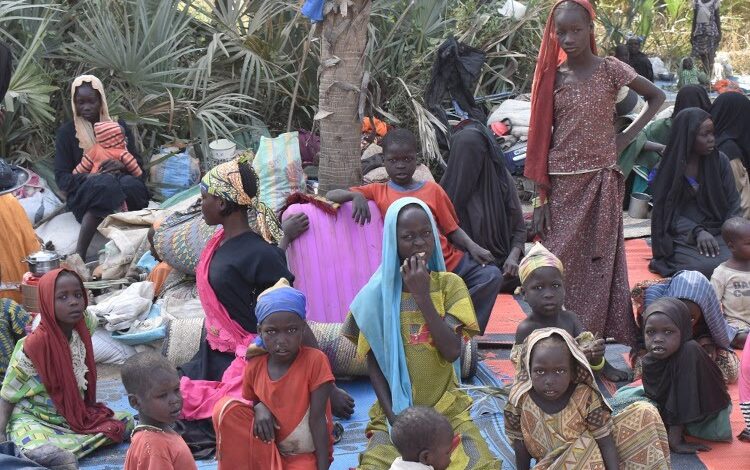Over 30,000 Cameroonians Now Refugees In Chad After Arab Choa, Mousgoum Conflict
Over 30,000 Cameroonians fleeing the inter-communal violence between Arab Choa and the Mousgoum in the Far North region of Cameroon have taken refuge in Chad since the beginning of the violence on Sunday, Dec. 5, 2021.

Over 30,000 Cameroonians fleeing the inter-communal violence between Arab Choa and the Mousgoum in the Far North region of Cameroon have taken refuge in Chad since the beginning of the violence on Sunday, Dec. 5, 2021.
After some relative calm between Monday, Dec. 6 and Tuesday 7, violence erupted on Wednesday, Dec. 8 through Thursday, Dec. 9, extending to the Cameroon-Chad border town of Kousseri.
According to Cameroonian administrative authorities, violence in the last two days “has resulted in tens of deaths and destruction of properties in the Far North forcing thousands of persons to flee the region towards neighbouring Chad.”
“These recent conflicts have brought about the escape from Cameroon of more than 30,000 persons who are now taking refuge in Chad,” said General Mahamat Idriss Deby, the leader of the Chadian military junta.
The United High Commission for Refugees (UNHCR) also confirmed that “the recent inter-communal clashes between Arab Choa cattle breeders and Mousgoum fishermen and farmers have forced thousands of asylum seekers to cross the border towards neighbouring Chad”.
The UN agency said the government of the Republic of Chad, the United Nations System in Chad and its partners are actively “working to respond to the urgent needs of all these persons installed in several villages in the Chadian province of Chari-Baguirmi.”
Since Sunday, Dec. 5, when the current violence between Arab Choa cattle breeders and Mousgoum fishermen and farmers started in the Logone-Birni division near the frontier with Chad, over 32 persons have died and 48 wounded, according to figures announced on Wednesday, Dec. 8, by Cameroonian administrative authorities.
However, since those last casualty figures, more intense violence flared up on Thursday in Kousseri, with about 100 persons reported by local eyewitnesses to have been killed and several houses burnt down.
Cameroon authorities have not issued any official casualty figures from the violence.
Similar clashes between the Arab Choa and Mousgoum took place in the same localities in August this year, resulting in the deaths of over twenty persons, according to official figures.
Support Our Journalism
There are millions of ordinary people affected by conflict in Africa whose stories are missing in the mainstream media. HumAngle is determined to tell those challenging and under-reported stories, hoping that the people impacted by these conflicts will find the safety and security they deserve.
To ensure that we continue to provide public service coverage, we have a small favour to ask you. We want you to be part of our journalistic endeavour by contributing a token to us.
Your donation will further promote a robust, free, and independent media.
Donate HereStay Closer To The Stories That Matter




